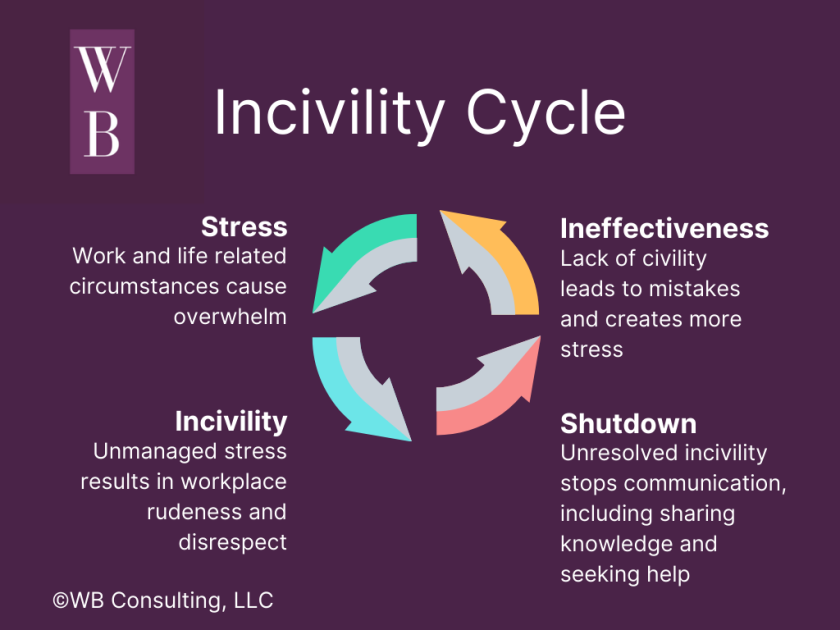Team Newsletter – 8.18.23
Table of Contents
Pre-Season Resources for Returning Team Members
Summer Job Fair
Winter is right around the corner and we’re hiring! This is your opportunity to connect with our hiring team in person, ask questions, and gain insights into opportunities at Meadows.
Returning team members are invited, and we’ll be conducting on-the-spot interviews. All attendees will receive a free scenic chair ride & a $5 meal voucher to the Paradise Grill.
Bring a friend! If you refer someone to work at Meadows or Cooper Spur, you could be eligible for a $50 referral bonus! Learn more about the Refer-A-Friend program below:

Housing Updates
New Team Housing Opportunity
We have added a team housing opportunity in Parkdale which offers housing year-round, and we are ready to start taking intakes with team members who may be interested in seasonal or year-round occupancy.
Parkdale Team Housing:
- Available for Full Time Seasonal & Year-Round Team Members
- Shared House but Occupants Rent Their Own Room
- Couples Can Rent Room Together (adjusted rate for utilities)
- Rent Rates: $675 – $775 utilities and Wi-Fi included (rates depending on room size)
- Walking Distance to Town, Bus Stop, Store, Solera
- Amenities: Brand New Beds, Furnished, Washer/Dryer, Pool Table, Foosball Table, Lots of Storage, Breathtaking View of Mt. Hood
- Resident Assistant Paid Opportunities & Reduced Rent
- Ready for Move-in Next Week (Active Team Members and Candidates Who Have Accepted Seasonal Position Offers)
Learn more and submit a team housing intake application:
Turns 4 Tenants now accepting Landlord Applications
The Turns for Tenants (T4T) program is a community-based housing initiative that provides incentives for local homeowners and landlords to list available rentals to the Mt. Hood Meadows and Cooper Spur team. It provides an incentive to local area landlords and in turn, encourages the affordability and accessibility of local housing to MHM and CSMR employees.
Landlord applications are now open for the 23/24 winter season.
Company Updates
Hello, Team members! We hope you are enjoying your summer.
The start of the 2023-24 season is just a few months away. There will be a big change for you and for our guests this upcoming season: Mt. Hood Meadows will be going cashless, starting November 1! All guests can use their debit card, credit card, smartphone-based payment service (Apple Pay, Google Pay, Samsung Pay), or reverse ATM debit card to make purchases at the resort and enjoy faster transactions, enhanced speed of service, and shorter wait times, so they can quickly get back to enjoying the mountain. This change will help streamline operations on our end too.
There will be three reverse ATMs installed at the resort: one at HRM, one in the Sahale dining area, and one near Concierge. Guests with cash will deposit the desired amount into a reverse ATM, which will then dispense a Visa-branded debit card with the exact requested amount, which can be used anywhere debit cards are accepted – both on and off the mountain. Guests will still be able to tip in cash if they wish.
We’re excited about this change and are looking forward to the start of the 2023-24 season!
– Derek Gibbs, Chief Finance Office
As most of you know, Meadows and Cooper Spur team members are eligible for either free or discounted season passes for their dependents.
In years past, we have defined dependents as a spouse, domestic partners, or children 18 years of age or under.
The updated definition of a dependent is as follows: A spouse, domestic partner, or child 22 years of age or under.
The DEI team met in June for an annual planning meeting at Cooper Spur. At the meeting, the team updated our SWOT analysis, refined existing goals, set priorities for the 2023-24 season, and made updates to the committee structure.
Heading into this season the committee felt it was important to keep the DEI Training and Recreational Opportunities initiatives as top priorities but in addition to those they added an additional Communications focus group to review some areas of our internal and extremal communication with a DEI focus in mind. Lara Yeats will continue to lead the Training focus group, Madison Canfield will continue to lead the Recreational Opportunities focus group and Tiana Peterson will lead the new Communications focus group.
When discussing the structure of the committee there was a need for some more defined roles within the committee. The team agreed that Madison and Lara being Co-Facilitators of the committee would help keep things on track without putting too much workload on one person. Going forward Madison and Lara will be working together to lead the committee’s direction and ensure we are staying on track.
A need to have a committee member take the lead on the organization and recording of meeting minutes and action items was also identified. Eduardo Cabral is stepping into this role to be the committee’s “Action Memorializer” and ensure accurate records are kept are recorded.
Big thank you to the committee for all their hard work!
We are excited to announce that Meadows will be installing EV charging stations!
Construction on the rock wall will begin Monday, August 21st, and continue through Friday, August 25th. We will still be open during the installation period, but there will be some noise and dust specifically on Monday while they cut the pavement between Sahale and the Rock Wall.
The area along the Sahale Lodge and the Rock Wall will be blocked on the left-hand side (when facing the mountain from the parking lot). There will be no through traffic while the installation is happening.
Please respect any coned and marked-off areas for this project.
National Civility Month
August marks National Civility Month. This holiday was founded to help remind us to be considerate of others and treat each other with kindness, empathy and respect. The modern day meaning of civility is etched in every person’s mind and is a common theme that unites us through understanding and fosters a sense of belonging. It is up to those who care about what civility means to be human that will ensure the respectful treatment of others. Whether it is a fellow employee, member of management, customer, vendor, or visitor to our resort premises.
Why is this important?
The practice of civility can help diverse groups of people develop a deeper understanding of one another’s beliefs, values, opinions, and perspectives. This can reduce the likelihood of misunderstanding, stereotyping, and conflict, and encourage a continued effort towards psychologically safe environments.
The absence of civility is a common source of tensions, conflicts, and stereotyping, along with other negative behaviors in groups – particularly among groups from different socioeconomic, cultural, or racial backgrounds.
Research shows incivility reduces our cognitive bandwidth up to 61% and limits our ability to effectively juggle multiple tasks and conscious thoughts. This is where we start to think about incivility and the impact it has and how it damages relationships.
Characteristics of Civility
The foundation of all civil interactions is the recognition—both inwardly and outwardly—of the dignity and humanity of others, which entails, for example, empathizing with their experiences, appreciating their contributions, valuing their perspectives, or recognizing the legitimacy of their concerns.
Expressions of mutual respect exchanged between individuals or groups are essential to the practice of civility. Demonstrations of respect are validating and affirming to others, and they can disarm the behaviors that often escalate into uncivil and disrespectful interactions.
Because civility may not be a natural response in certain social situations—such as when someone makes rude or insulting comments—civility often requires the intentional decision to maintain civil behavior despite the urge to act or respond in less-than-civil ways.
Civility often requires restraint—specifically, the ability to control negative emotional reactions, such as defensiveness or anger, or to refrain from uncivil responses, such as combative argumentation, snide remarks, hostile gestures, or contemptuous looks and comments.
In a civil interaction, people take responsibility for their behavior by, for example, recognizing, self-correcting, and apologizing for one’s own inappropriate or disrespectful behavior. In uncivil interactions, people often assign responsibility for their own behavior to others, such as when they claim that disrespectful behavior justifies a disrespectful response or that someone’s comments “caused” their behavior.
When participants in a group dialogue, activity, or process share their personal stories, it helps others develop a stronger understanding and appreciation of how those experiences have shaped their values, priorities, or perspectives, particularly when participants come from different racial, cultural, or socioeconomic backgrounds. When people share their experiences, it helps to cultivate empathy among listeners, which makes it harder for others to stereotype, label, dehumanize, or objectify them—all of which are perceptions that can contribute to uncivil behavior.
While kindness is not a requirement for civility, acts of kindness—such as outward expressions of caring, concern, or compassion—tend to encourage more civil interactions and defuse uncivil behaviors.
The exchange of mutual respect among individuals and groups is essential for maintaining civil interactions. If only one party or group is acting with civility in an exchange, collaboration, or partnership, the relative incivility of the other party or group will likely undermine civil relations.
What actions can I take to interrupt incivility?
Acknowledge that all of us at times are disrespectful or impolite and be vigilant and self-aware about our own behavior when we are feeling overwhelmed or stressed.
- When we are disrespectful, impolite, or otherwise uncivil, address that behavior immediately and directly with the person affected by the behavior. Communication is the antidote to shutdown.
- Learn and practice offering sincere and legitimate apologies (acknowledge the behavior + identify the harm + take responsibility + offer to repair + ask for forgiveness + change behavior). “I am sorry you feel that way” is not a real apology.
- Collaborate with others to create a culture where civility, psychological safety, candid communication, and stress management are top priorities.
We cannot solve the world’s civility problems on our own. But through intentional efforts, we can create civil environments, filled with politeness and respect, within our homes, social circles, and workplaces.


